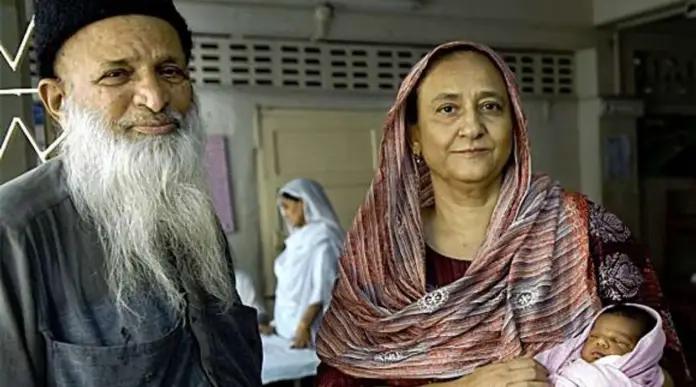By Iffat Farooq
“April is the cruellest month, breeding lilacs out of the dead land,” the location of these lines by Eliot is as momentous and significant as the contemporary state of degeneration of our society. Pakistan went into deep mourning in the month of April when Bilquis Edhi, a recipient of the Mother Teresa Memorial Award for social justice breathed her last in Karachi.
The state funeral cortege did not accompany her and flags were not half-staffed. Her eulogy was attended by browbeaten the society and her last journey was accompanied by prayers of thousands of unwanted children. A woman has shown through loud actions and very few words. Seldom, have millions of beneficiaries of his services have listened to her voice but she will be ever remembered through her suave actions for women and orphans.
She dedicated her life to humanity irrespective of cast creed and community. She left a hope that small actions of kindness will lead towards regeneration in the wasteland of our society.
She practically knotted with the mythology of the mother of her companion Edhi, “Every day before school my mother gave me 2 paisas and said, spent one on yourself and give the other away, it was her way of creating awareness in me of the need for social welfare”. She was the real manifestation of the stimulating leitmotif sprinted behind the stretched tale, the altruistic tale of compassion which touched the lives of millions of the people across the globe.
The tale is so phenomenal, inspiring and startling. She is an inspiration and the supporting hand of someone as magnanimous as Edhi Sahab. It takes infinite wisdom, passion and patience. I had a chance to meet the couple in 2012 and heard these tales and witnessed the layers of education, skill development and home facilities provided to the children. An autobiography gifted by Edhi under his signature “A Mirror to the Blind” is peeping from my bookshelf and asking a question about the future of unwanted children in our lands.
We need to recognize the efforts and inspire others to be a part of this crusade, the crusade against infant killing. Iconic philanthropic practitioners came up with a novel idea of cribs placed in front of each centre best known as “Jhoola project”. Some of the cradles carried signs that read ‘Do not kill the innocent babies’.The babies left in cribs are eventually taken into the foundation’s custody and care.
This service reportedly saved over 42 thousand unwanted babies in Pakistan. This project received pushback from religious clerics when it was instituted. Some religious segments portrayed it as encouraging people to bear children out of wedlock. The project is running on a non-commercial, non-political and non-communal basis serving without any discrimination and is enjoying exclusive credentials.
This is a hallmark project in Pakistan which was an attempt to fight infanticide, especially female infanticide. The couple was opposed by many. They were told that they were non-believers. A number of fatwas were imposed that they wouldn’t go to Paradise. But Edhi’s response was astounding that he doesn’t want to go to extremists’ heaven.
Many had criticized Edhi Sahab for his liberal and unorthodox views but his unparalleled credence couldn’t be shaken. However, the project was approved and appreciated over a period of time and people became comfortable with the dynamics of the project. On annual basis, the Edhi Foundation is giving over 250 children for adoption and more than 23 thousand babies have been provided to childless couples and families. Abandoned newborn babies are being handed over to childless couples after a rigorous screening process that the couple or family is precisely suitable for the baby’s adoption.
Bilquis Edhi joined the foundation as a teenager, a nurse by profession, she worked in the foundation’s maternity clinic. Flu outbreaks in the ’50s, war dead in the ’60s, gangland killings in the ’90s — they were around every day. The efforts of the foundation are also unique that they had not accepted aid from any government or institutions.
The foundation is not only a testament to the man’s administrative, philanthropic genius and verification of true intentions but is also a demonstration of the strength of his heart and his wife. The couple rose by lifting others and left a legacy of true virtues and ultimate values of humanity truth, peace and love. The benevolence and kindness of this couple ran like snow for the orphans and unwanted children-it beautified everything it covered.
(The writer is a public policy practitioner and women’s rights enthusiast)







